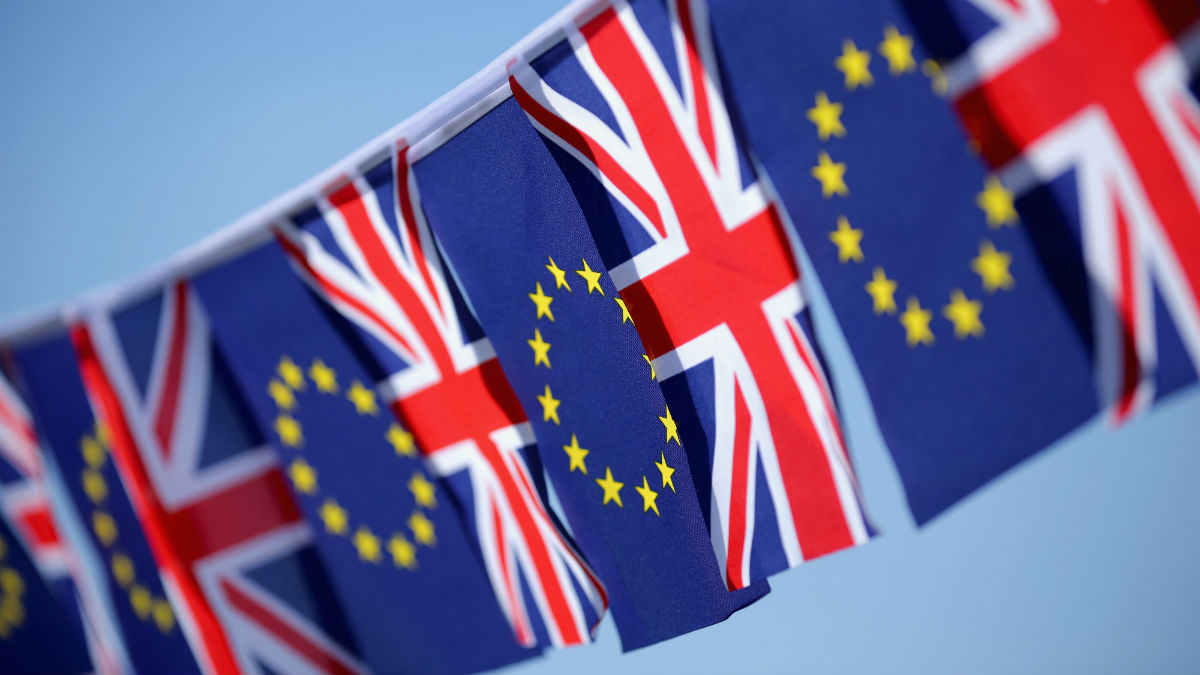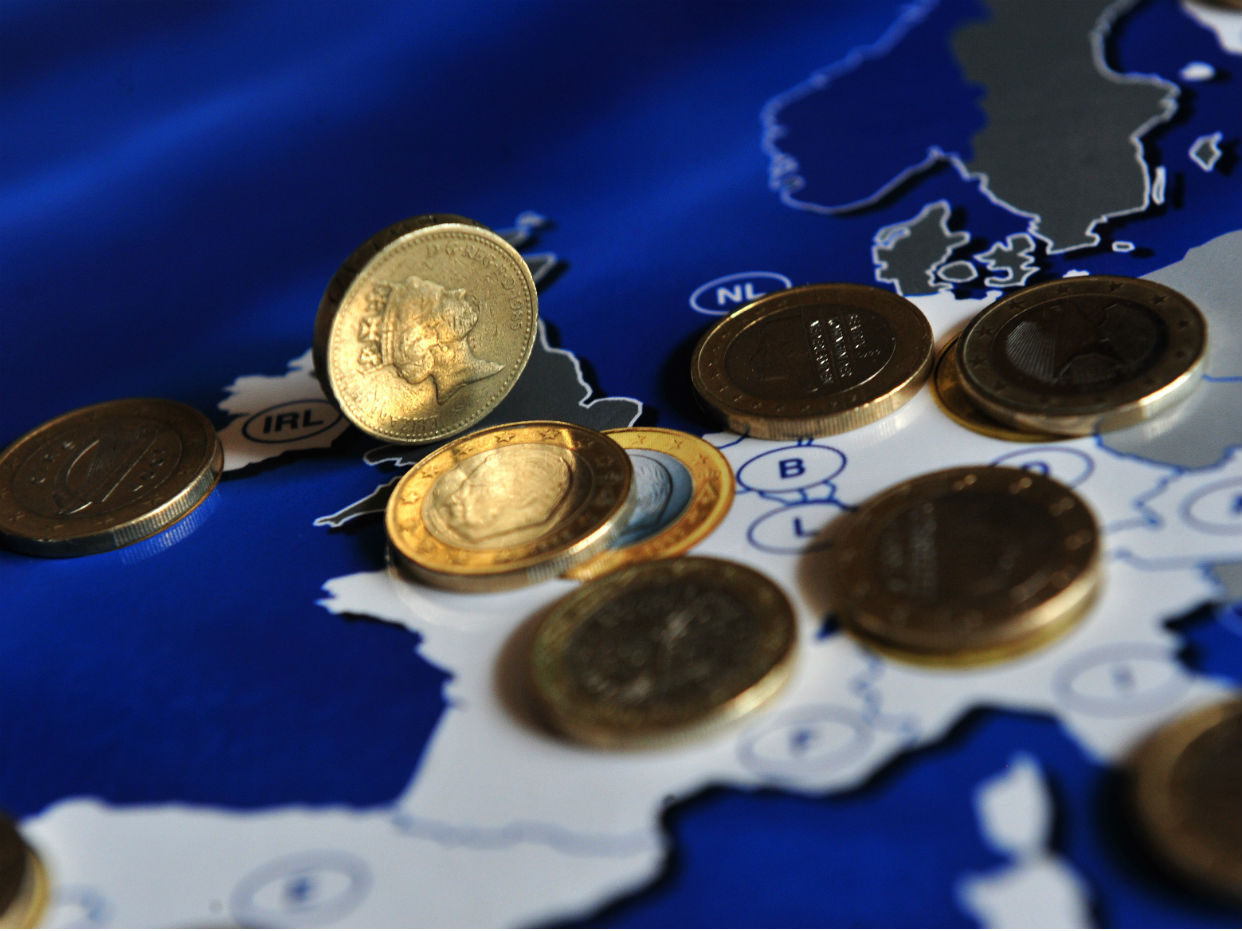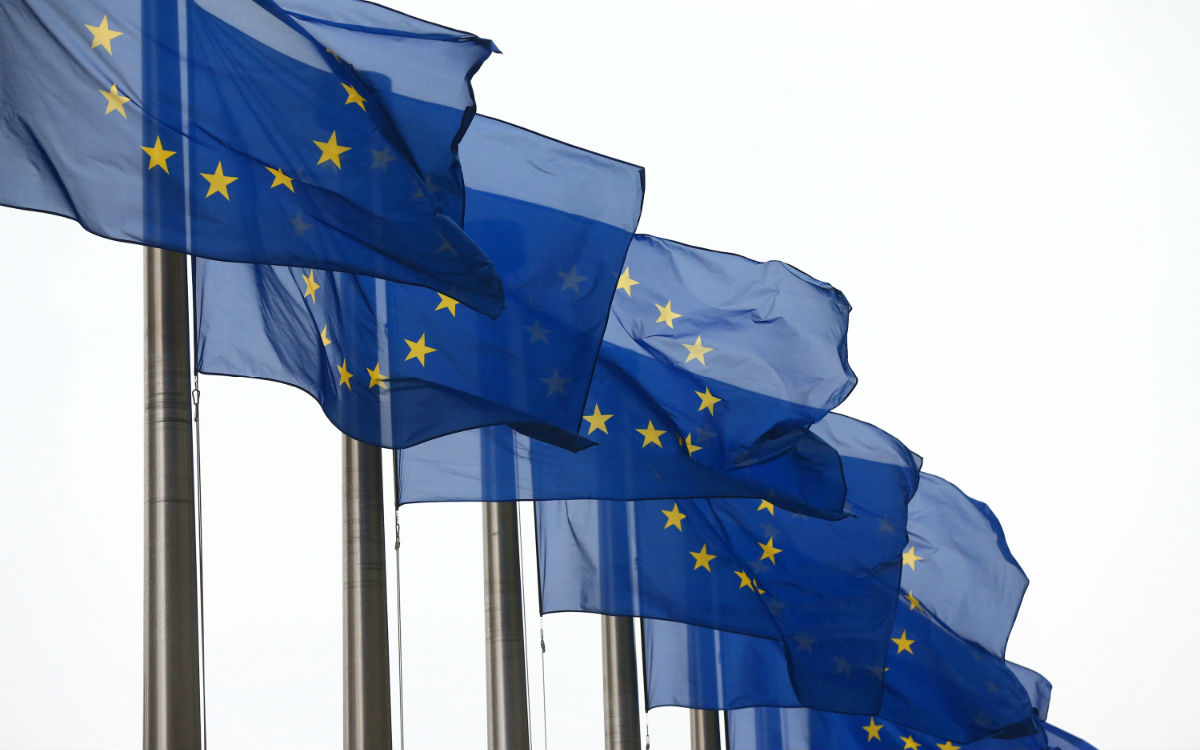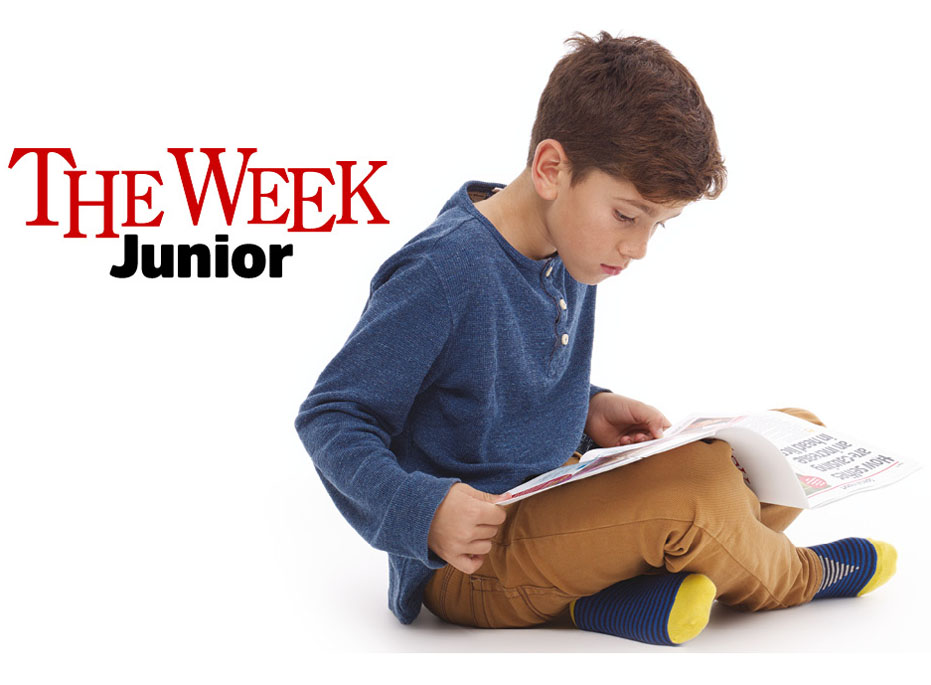EU referendum: A guide for eight- to 14-year olds
What is the EU and why does it matter if Britain remains in or votes to leave? The Week Junior explains what this complex issue is all about

A free daily email with the biggest news stories of the day – and the best features from TheWeek.com
You are now subscribed
Your newsletter sign-up was successful
The Week Junior makes sense of the world for enquiring younger minds. Here, the magazine explains why the upcoming British referendum on Europe is important.
What does it mean to be part of the EU?
The European Union has been a hot topic in the news recently. But what is it and what does it do?
The Week
Escape your echo chamber. Get the facts behind the news, plus analysis from multiple perspectives.

Sign up for The Week's Free Newsletters
From our morning news briefing to a weekly Good News Newsletter, get the best of The Week delivered directly to your inbox.
From our morning news briefing to a weekly Good News Newsletter, get the best of The Week delivered directly to your inbox.
The UK is getting ready to make a very important decision about whether or not it should stay in the European Union (EU). A special type of vote, known as a referendum, will be held on 23 June. It will ask all UK citizens over the age of 18 whether or not they want to stay in the EU.
Some people want to stay because they think the UK is better off being part of a larger group of countries and that it’s better for our economy. Others want to leave because they are worried that the EU has too much control over the UK. They also think that being a member is too expensive, and that the EU sets too many rules for UK businesses.
What is the European Union?
The EU is like an enormous club, made up of 28 countries, known as member states. All countries must show they respect certain values, such as fair elections, before they can join. Countries pay money each year to be in the EU, and in return they receive benefits.
A free daily email with the biggest news stories of the day – and the best features from TheWeek.com
The founding principles of the EU are the free movement of goods, services, capital and people. This means that people can live and work in other EU countries without applying for a visa or work permit first. It is also easier for members to buy and sell goods to each other, almost as if the EU were one giant territory. This is known as the Single Market.
How it all began
The EU was created after the Second World War. It wasn’t known as the European Union to begin with, though. There were two organisations: the European Coal and Steel Community (ECSC), which was founded in 1951, and the European Economic Community, formed in 1958. These organisations were created to encourage trade in Europe and prevent any more wars. The idea was that if European countries could work closely with each other, it would help prevent another war. For more than 50 years, this has been true.
In 1951, just six nations – Belgium, France, Germany, Italy, Luxembourg and the Netherlands – made up what is now known as the EU. Today, there are 28 different countries in the EU, and others, like Turkey, want to join. The UK joined in 1973.
CurrencyThe EU has its own currency, which is called the euro. Not all countries use it though – only 19 out of the 28 countries. The UK, for example, doesn’t; we still use the pound.

How does the European Union work?
The European CouncilAll the big decisions are made here. The European Council is a bit like a school council, but instead of teachers, government ministers from each EU country attend meetings at least twice a year. The president of the council is Donald Tusk, the former prime minister of Poland. He leads every council meeting and makes sure decisions are made at the end of each one.
The European ParliamentMembers of the European Parliament are called MEPs. Almost anyone from the EU can become an MEP, but they have to be elected first. Elections are held every five years in each member state. There are a total of 751 MEPs. Parliament votes on whether suggestions from the European Commission and the European Council should be made into law, and how much money the EU can spend.
The European CommissionThis is where the day-to-day business of the EU is run. There are around 33,000 people who work for the European Commission. They check up on the member countries to make sure that they are following EU law and suggest new laws for the MEPs to vote on. Jean-Claude Juncker is the current president of the European Commission. He was elected by national leaders.
How the EU affects your life
Being a member of the EU directly affects many things in your life. Here are some of them:
Work and travelBecause the UK is part of the European Union, all UK citizens are also EU citizens. EU citizens have the right to live and work in any EU country. It also makes it easier to travel and take holidays throughout Europe.
Food and animal welfareAnimals that are bred for food, such as pigs, have to be raised under EU animal-welfare standards, which make sure the animals are looked after properly. Vegetables are also regulated by EU rules. Vegetables are sprinkled with pesticides to stop insects eating them, but there are rules on how much pesticide can be used. UK farmers also receive payments from the EU based on the efforts they make to improve the environment.
In fact, the UK has even stricter rules on animal welfare than the EU. This means that other EU countries can produce cheaper meat than UK farmers and sell it for a lower price in the UK. This isn’t good for British farmers and is one of the reasons some people think the UK should leave the EU.
Toys and gamesToys and games have to pass EU safety tests before they can be sold, and safety information must be clearly marked.

Did you know?
The EU has its own celebration day, called Europe Day. It is celebrated on 9 May.
EU anthemThe European Union has its own anthem. It’s taken from Beethoven’s 9th Symphony, and is called Ode to Joy.
It has no words, which is a deliberate decision to reflect that different languages are spoken in the EU
The Week Junior is a fantastic new magazine written for 8-14 year olds. It explains the news in a safe and accessible way, helping children explore the world and find out what’s going on. Try your first 6 issues for free – and find out why it has become Britain’s fastest growing magazine for children. Visit theweekjunior.co.uk

-
 How the FCC’s ‘equal time’ rule works
How the FCC’s ‘equal time’ rule worksIn the Spotlight The law is at the heart of the Colbert-CBS conflict
-
 What is the endgame in the DHS shutdown?
What is the endgame in the DHS shutdown?Today’s Big Question Democrats want to rein in ICE’s immigration crackdown
-
 ‘Poor time management isn’t just an inconvenience’
‘Poor time management isn’t just an inconvenience’Instant Opinion Opinion, comment and editorials of the day
-
 How corrupt is the UK?
How corrupt is the UK?The Explainer Decline in standards ‘risks becoming a defining feature of our political culture’ as Britain falls to lowest ever score on global index
-
 The high street: Britain’s next political battleground?
The high street: Britain’s next political battleground?In the Spotlight Mass closure of shops and influx of organised crime are fuelling voter anger, and offer an opening for Reform UK
-
 Biggest political break-ups and make-ups of 2025
Biggest political break-ups and make-ups of 2025The Explainer From Trump and Musk to the UK and the EU, Christmas wouldn’t be Christmas without a round-up of the year’s relationship drama
-
 ‘The menu’s other highlights smack of the surreal’
‘The menu’s other highlights smack of the surreal’Instant Opinion Opinion, comment and editorials of the day
-
 Is a Reform-Tory pact becoming more likely?
Is a Reform-Tory pact becoming more likely?Today’s Big Question Nigel Farage’s party is ahead in the polls but still falls well short of a Commons majority, while Conservatives are still losing MPs to Reform
-
 Taking the low road: why the SNP is still standing strong
Taking the low road: why the SNP is still standing strongTalking Point Party is on track for a fifth consecutive victory in May’s Holyrood election, despite controversies and plummeting support
-
 Is Britain turning into ‘Trump’s America’?
Is Britain turning into ‘Trump’s America’?Today’s Big Question Direction of UK politics reflects influence and funding from across the pond
-
 What difference will the 'historic' UK-Germany treaty make?
What difference will the 'historic' UK-Germany treaty make?Today's Big Question Europe's two biggest economies sign first treaty since WWII, underscoring 'triangle alliance' with France amid growing Russian threat and US distance